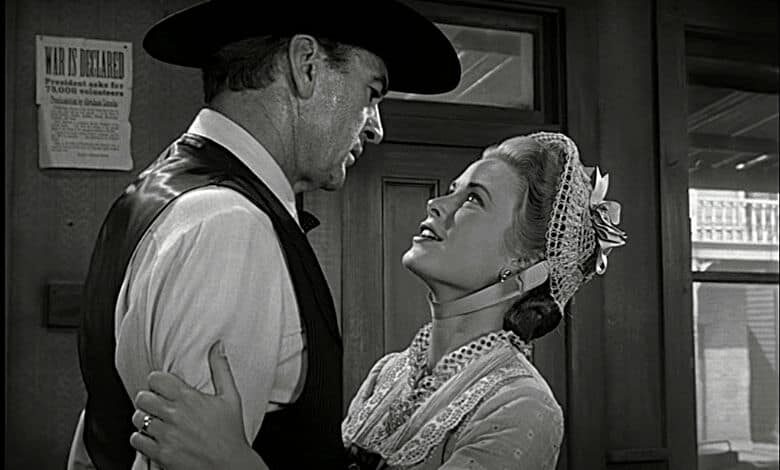The Timeless Virtue of ‘High Noon’
Why re-watching the 1952 classic can counter modern Hollywood messaging

Hollywood’s subversion of Judeo-Christian morality has never been more obvious.
What was once considered vice is too often celebrated as virtue, and vice versa. One need look no further than some of today’s critically acclaimed films. Take, for example, last year’s “Unpregnant,” featuring two teenagers on a road trip for the purpose of aborting a baby.
The narrative lacks a sense of responsibility or honor. Any argument other than the pro-choice view is caricatured. This film earned raves (though general audiences panned it), with critics hailing it as a beautiful depiction of liberation and postmodernism.
Yet, for one who identifies with the aforementioned Judeo-Christian values, that reaction would have more likely been one of shock, not acclaim.
Wokeism is the new standard by which movies today are assessed, witness the Academy of Motion Picture Arts & Sciences’ new diversity rules. (In truth, films have been judged on their intersectionality for some time now).
On a micro level, that subversion of values can be seen in Hollywood’s redefinition of masculinity. For every Andy Griffith that once graced the screen, there is now a Homer Simpson or Peter Griffin.
One has little option but to find refuge in the past.
Enter the western which, in many ways, encapsulates everything that is romantic about the American story. Taking place on the frontier of manifest destiny, the western epitomizes the Abrahamic adventure wherein Abraham is told to “go forth” by God in spite of all the risks that lie ahead.
On a fundamental level, the western is about the struggle to enact justice in a land where injustice reigns. And thus the western defines masculinity. It is to remain brave and to do the right thing in a world where doing wrong is the far easier option.
For all these reasons the 1952 classic “High Noon” remains relevant.
Director Fred Zinnemann’s film opens with a shot of the frontier as Tex Ritter’s eponymous song plays on.
“I only know I must be brave/And I must face a man who hates me/Or lie a coward, a craven coward.”
The lyrics hail from the perspective of Will Kane, the town marshal played by Gary Cooper. The marshal just married Amy (Grace Kelly) and they’re ready to leave both town and his past behind.
Before Will can go he learns that Frank Miller (Ian MacDonald), a criminal Will caught years earlier, has been released from prison. Frank vows to take vengeance upon Will along with three members of his gang. They’ll arrive via the noon train with the sole intention of killing Will.
With a little over an hour remaining before Frank’s arrival, everyone (including Amy) encourages Will to leave town. It’s not that simple for Will. He knows he’d never truly be free of this burden and worse, he’d be a coward.
At the film’s core is the choice between dying a man or living a coward, and Will chooses the former. The fear becomes increasingly palpable as Will goes around town to find deputies to aid him in his fight.
He is rejected time and time again, whether at the town’s church, the saloon, or the homes of close friends. Seeing Will face the inevitability that he’ll stand alone in this fight proves heartbreaking, as the aforementioned ballad lingers throughout the film.
In fact, in one poignant scene, Will breaks down in desperation. The audience can see that he’s still human and is afraid, making his courage all the more commendable.
“High Noon” may be the most iconic western to date. It’s the story of a man isolated by his decision to do the right thing, but who follows through nonetheless, emblematic of true masculinity.
There’s also something to be said for the lore that surrounds the film. Cooper, himself a notable conservative, had complete faith in the film and in subsequent years men such as Dwight Eisenhower and Ronald Reagan would cite “High Noon” as one of their favorite films.
The film’s conservative appeal remains in spite of the fact that the screenwriter, Carl Foreman, was an ex-Communist and wrote the film while being persecuted by the HUAC. The film is undoubtedly allegorical. As Foreman himself said about his writing process, “life was mirroring art and art was mirroring life.”
Consequently, there is another important lesson to be taken away from “High Noon.” The best storytelling should transcend politics and convey universal truths.
It’s increasingly common to find contemporary filmmaking that embraces propaganda over narrative. While one waits for true storytelling to become prominent once again, there’s always the past.
————————
Colin North is a college student from Hudson, Ohio. He hosts the “Scotch and Smoking Jackets” podcast on Spotify, Apple Podcasts and Amazon Music.
